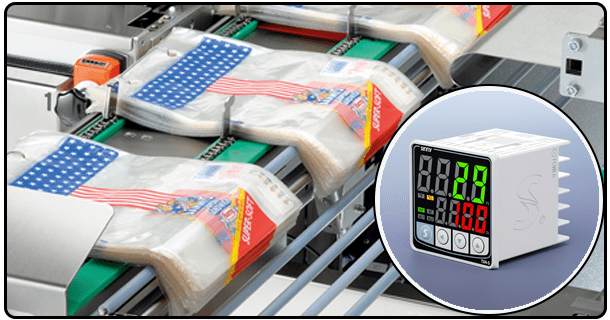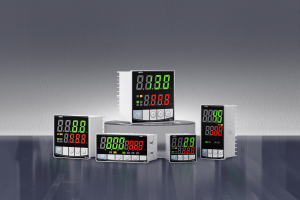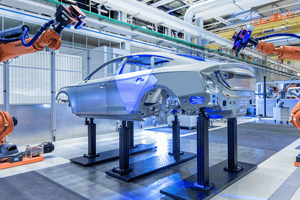Innovations in Industrial Temperature Control Technology
Discover recent advancements in temperature control technology that is revolutionizing a range of industries - intelligent sensors, AI solutions and energy efficient products are changing how temperatures are managed across many different environments.
1. Introduction
Accurate temperature regulation is crucial to efficient and safe operations within any industrial sector, while temperature control technology has developed rapidly over recent decades, creating breakthrough innovations which improve process efficiencies, safety, and sustainability. In this article we explore recent temperature control advancements across various industries as well as their effects.
2. Emerging Technologies in Temperature Control
Integration of Smart Sensors and IoT: Integrating smart sensors and the Internet of Things (IoT) has revolutionized temperature control systems. Smart sensors offer real-time temperature data for precise monitoring and management, with IoT connectivity enabling seamless interaction among other devices for automated adjustments or predictive maintenance - thus greatly increasing accuracy and responsiveness in temperature regulation systems.
Advanced Control Algorithms: Artificial intelligence and machine learning, two of the latest generation control technologies, have revolutionized temperature regulation precision and efficiency. By analyzing historical data to predict future temperature trends and make proactive adjustments accordingly. AI-powered control systems can optimize settings real time to minimize energy use while improving process stability thereby decreasing overall costs of process execution and increasing process stability.
Energy-Efficient Solutions: Advancements in energy-saving temperature control solutions like variable speed compressors and evaporative cooling systems have led to significant energy savings. Variable-speed compressors adjust their speed depending on cooling demand to lower energy usage while evaporative cooling systems use natural evaporation processes as an energy-saving method of air cooling compared to more traditional methods of cooling air.
3. Key Innovations and Their Applications
Predictive Maintenance: Predictive maintenance tools utilize data derived from intelligent sensors to anticipate and prevent equipment failures. By analyzing temperature readings and recognizing patterns in temperature data, predictive maintenance tools can forecast when certain components may break and schedule maintenance ahead of a breakdown to maintain continuous and efficient operation while decreasing downtime costs significantly.
Automated Systems: Automation in temperature control has many advantages, from increased accuracy and reduced human errors, to enhanced operational efficiencies and greater product consistency. Computerized systems can adjust temperatures based on real-time data for maximum comfort conditions - leading to consistent product quality and increased productivity.
Phase-Change Materials (PCMs) are essential in temperature management systems as a means to conserve energy usage while also maintaining precise temperatures. PCMs absorb and release thermal energy during phase transitions to create an even temperature environment - ideal when constant temperatures must be maintained such as with cold chain logistics or thermal energy storage systems.

4. Industry-Specific Innovations
Food and Beverage Industry: Temperature control innovations in this sector are crucial to ensure product quality and safety, including advanced refrigeration systems such as smart refrigerators or temperature-controlled warehouses to keep perishable goods at an ideal temperature throughout their supply chains - helping prevent spoilage as well as extend shelf lives of perishable goods.
Temperature Control in Pharmaceutical Manufacturing: Innovative temperature-control innovations play a critical role in maintaining the integrity and efficacy of pharmaceutical products. Innovative incubators and cold chain logistics solutions maintain precise temperatures during storage and transportation to avoid degradation while keeping medications effective - essential elements to complying with regulatory standards while safeguarding patient safety.
Chemical Processing: Temperature control technologies play a vital role in optimizing chemical reactions and assuring plant safety in chemical plants. Innovations like AI-driven control systems and intelligent sensors offer precise temperature regulation that increases yield while simultaneously decreasing incidents risk. Such innovations enhance process efficiency while providing safer operations overall.
Electronics Manufacturing: Temperature control innovations in electronics production are vital in order to prevent overheating and ensure reliability for electronic components. Cooling systems such as liquid and thermoelectric coolers help regulate temperatures efficiently during production processes; such innovations help preserve integrity while simultaneously increasing product quality.
5. Advantages of Innovative Temperature Control Technologies
Increased Process Stability: New technologies help enhance process stability by maintaining constant temperatures throughout a manufacturing process, leading to more reliable outcomes and higher product quality while decreasing variance during the production cycle.
Increased Efficiency and Productivity: Innovations in temperature control have drastically enhanced operational efficiencies and productivity, automating systems, predictive maintenance tools reducing downtime to optimize processes reducing throughput while decreasing operational costs.
Energy Savings: Energy-efficient temperature control technologies offer considerable energy savings by optimizing temperature settings and decreasing consumption, helping lower operational costs while supporting environmental sustainability.
Improved Safety: Modern temperature control technologies increase safety in industrial processes. Predictive maintenance tools and automated systems use predictive maintenance analytics to reduce equipment failure risks and ensure safe operations ensuring safe operations and operations.
Environmental Sustainability: Innovative temperature control solutions promote environmental sustainability through reduced energy usage and emissions, contributing to reduced greenhouse emissions while simultaneously shrinking industrial operations' ecological footprints.
6. Current Challenges and Future Trends
Integrating New Temperature Control Technologies With Existing Systems: Integrating innovative temperature control technologies into legacy systems can be daunting, yet maintaining compatibility between them is crucial in order to take full advantage of them. Solutions such as modular upgrades or IoT gateways may facilitate integration for maximum benefit from such investments.
Cost Considerations: Temperature control technologies offer long-term advantages, yet initial investments may be substantial. Carefully considering upfront expenses against savings potential is vital to making informed decisions, including evaluating return on Investment (ROI). Financing options could also provide helpful ways of controlling expenses.
Future Trends in Temperature Control Technology: Emerging trends in temperature control technology include using blockchain for data security and developing more advanced AI-driven control systems. Blockchain can increase integrity and traceability to ensure secure monitoring. AI will continue its development to deliver even greater precision and efficiency to temperature regulation systems.
7. Conclusion
Industrial temperature control technology innovations have revolutionized how industries manage temperature-sensitive processes. They improve process stability, increase productivity and efficiency, save energy resources and promote environmental sustainability - providing enterprises with more cost-efficient yet longer lasting operations that guarantee success in long term operations. By adopting these cutting edge solutions, enterprises can ensure long-term success through more streamlined operations with improved sustainability measures in place.
- Learn the Role of Industrial Temperature Controllers to Increase Safety
- How to Select the Appropriate Industrial Temperature Controllers





















